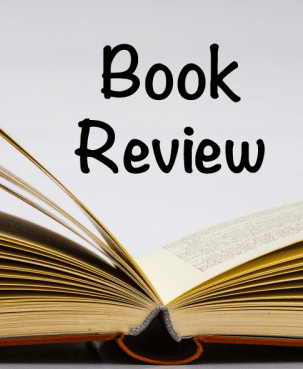By: Rameez Bhat
In today’s world, where people are constantly encouraged to promote themselves, seek attention and chase validation. ‘Ego is the Enemy’ by Ryan Holiday offers a powerful and much needed perspective that runs against the grain. Rather than celebrating ego as a driver of success, Holiday argues that it is often the very thing that sabotages us quietly, subtly and persistently. Ego, he explains is not confidence or ambition but an unhealthy belief in our own importance. It is the voice that tells us we’re more than we really are that we know more than we do or that we deserve more than we’ve earned. And while it may feel like ego is pushing us forward, Ryan Holiday shows how it actually holds us back damaging our judgment, poisoning our relationships and ultimately standing in the way of our potential.
Holiday presents life and work as unfolding in three broad stages: the phase of aspiration, when we are striving to achieve something; the phase of success, when we have achieved it; and the phase of failure or difficulty, when things fall apart. In each of thesestages’ego plays a disruptive and often invisible role. When we are just starting out and dreaming of success ego tells us that we’re already special that we deserve recognition even before we’ve done anything meaningful. This makes us impatient closed to feedback and unwilling to learn. We begin to value attention more than substance applause more than growth. Holiday illustrates this with the lives of people like William Sherman and Katharine Graham, who achieved great things not because they believed they were destined for greatness but because they were willing to put in the work, stay humble and learn constantly. Real progress Ryan Holiday insists, happens when we let go of the need to be seen as impressive and focus instead on becoming truly competent and useful.
The dangers of ego become even more pronounced when we achieve success. At this stage, ego whispers that we’ve figured it all out that we’re above criticism and immune to mistakes. This inflated sense of self blinds us to our own weaknesses and tempts us to rest on our laurels. It’s in these moments, Ryan Holiday warns, that we often lose the very qualities like discipline, curiosity and humility that helped us succeed in the first place. He draws a sharp contrast between those who manage success with grace and those who are undone by it. On one hand, we have figures like Angela Merkel and Bill Belichick, who stay focused on the work itself remain humble and continue to improve. On the otherhand,there are examples like Howard Hughes, whose unchecked ego led to isolation, decline, and ultimately destruction. Success far from being the end of the battle against ego, is often when the struggle becomes the hardest.
Even in failure ego does not retreat. Instead, it finds new ways to exert control. When things go wrong ego convinces us to shift blame to deny the truth or to maintain a facade of strength instead of facing the reality of our situation. This defensiveness and self-deception block growth and healing. But Holiday shows that failure, when approached with humility and self-awareness can be one of the most powerful teachers. He shares the stories of people like S. Grant and Thomas Edison who encountered major setbacks but did not let those failures define them. Their strength came not from arrogance or denial, but from their willingness to confront hard truths, adjust and keep moving forward without letting ego take over.
What sets Ego is the Enemy apart from typical self-help books is the depth of thought and philosophy behind it. Holiday draws heavily on Stoic wisdom, particularly from thinkers like Marcus Aurelius, Seneca and Epictetus. These ancient philosophers taught the importance of self-mastery, inner discipline and focusing on what we can control rather than external rewards. Holiday brings these timeless ideas into a modern context showing how they can help us deal with the challenges of ambition, recognition and adversity. His message is not just to avoid arrogance but to develop a deeper strength; one that comes from self-awareness, restraint and grounded purpose.
Throughout the book, Holiday uses a wide range of real-life examples from military leaders and political figures to artists, athletes and entrepreneurs. These stories serve as mirrors, encouraging readers to ask difficult but important questions. Are we truly learning or are we more interested in appearing smart? Are we listening to others or waiting for our turn to speak? Are we driven by purpose or by the desire for attention? By reflecting on the lives of others, we’re invited to examine our own motivations and behaviors with honesty.
Another notable strength of the book is its clarity and accessibility. Each chapter is concise and filled with insight, making the book both easy to read and rich in content. Holiday’s tone is measured and relatable; he doesn’t come across as a guru handing down commandments but as someone who has faced these struggles himself and wants to share what he’s learned. This sincerity makes the book feel more like an honest conversation than a lecture.
At its core, Ego is the Enemy offers a vision of greatness that is quiet, steady and deeply rooted. In a culture that prizes visibility, applause and personal branding. Ryan Holiday invites us to step away from the spotlight and focus on the deeper work of becoming better human beings. True strength he suggests, lies not in showing off, but in showing up; not in being loud, but in being consistent. It lies in the humility to keep learning the discipline to keep going and the resilience to face both triumph and defeat with grace.
This book is for anyonewhether you’re starting out in your career, leading others or trying to recover from a loss. Its lessons are simple yet profound and its challenge is clear; if we want to live wiser, stronger and more grounded lives, we must learn to master our ego. In doing so we don’t lose our strength we unlock our true potential.



